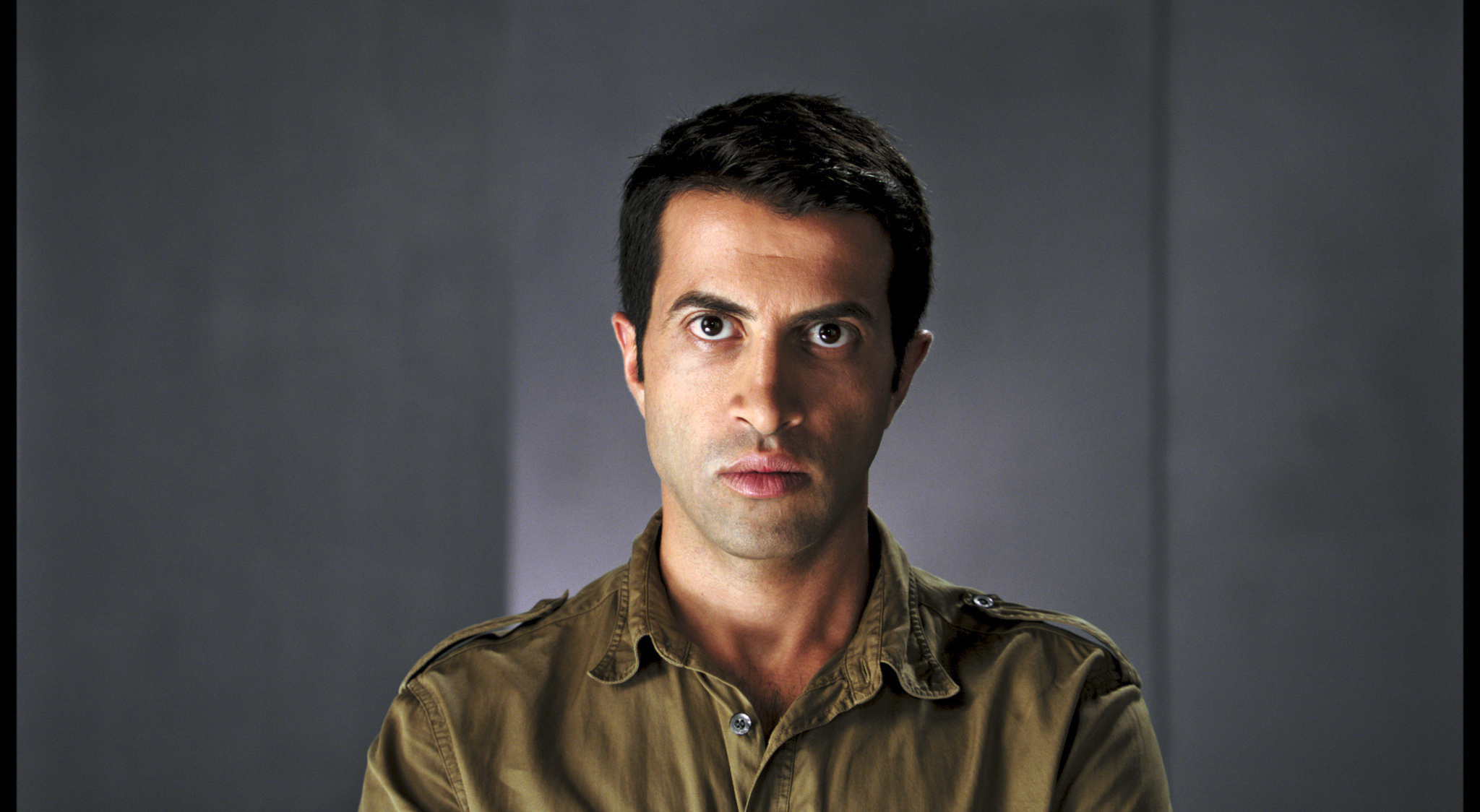Down in the lower paragraphs of news stories about the Middle East, whenever this Hamas faction or that Hezbollah brigade takes over a town, you’ll read how some nameless Arabs were summarily executed for being suspected Israeli spies. Whether they were informants or not doesn’t really matter; a warning is being made, a code of loyalty enforced: You’re either with us or against us. Yet Mosab Hassan Yousef, eldest son of a high-ranking Hamas leader, was both with and against that terror group while secretly collaborating with Israel’s Shin Bet security agency. And he lived to tell the tale, leading first to his 2010 book Sons of Hamas; then he was on the TV news while fighting deportation from San Diego; and now he appears with his former Shin Bet handler in Nadav Schirman’s very narrowly focused documentary.
The Green Prince (Yousef’s code name) is mostly a studio enterprise, with Yousef and ex-Shin Bet agent Gonen Ben Yitzhak interviewed separately, interpolated with news footage and green-tinted re-enactments (as if viewed from drones with night-vision cameras). Both men come off well, no surprise; and while the doc isn’t overtly political, the terms of access here would appear to align with Schirman’s pro-Israel sympathies. (There’s no mention of legitimate grievance in the occupied territories.) Most of the film is procedural: Yousef and Yitzhak recall their courtship, narrow escapes, staged arrests, the details of fooling Yousef’s father (often jailed) and large family. (They’ve since disowned him—in part because he also converted to Christianity.)
There are no outside voices, and Schirman (The Champagne Spy) doesn’t interject any tough questions (again: terms of access). The amount of detail here might be tolerable if the smiling, English-fluent Yousef were a more colorful or flawed figure, but he and Yitzhak come off like minor characters in a John le Carre novel: guys we might meet in one chapter and forget, not strong enough to carry the whole story.
Where Schirman really falls short is in probing the psychology behind Yousef’s betrayal of kin and cause. He says, briefly and glibly, that he wanted to prevent violence among Palestinians. He adds that he wasn’t paid very much by Shin Bet, though his life in exile now compares rather favorably to conditions back in Ramallah. So why, following his 1996 arrest and interrogation as a 18-year-old, did Yousef trade allegiances? “Nobody had a gun to my head,” he says, further recalling the vague conviction that “we are living a lie.” What that lie was, or is, Schirman fails to summon. And what Yousef’s story would tell us about the West Bank and Gaza today is nowhere evident in The Green Prince. Opens Fri., Oct. 10 at Varsity. Rated PG-13. 101 minutes.
bmiller@seattleweekly.com








